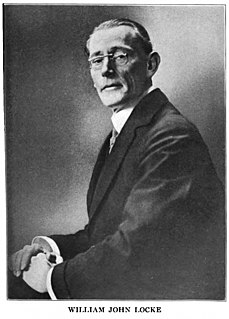A Quote by Martin Amis
What did Nabokov and Joyce have in common, apart from the poor teeth and the great prose? Exile, and decades of near pauperism. A compulsive tendency to overtip. An uxoriousness that their wives deservedly inspired. More than that, they both lived their lives 'beautifully'--not in any Jamesian sense (where, besides, ferocious solvency would have been a prerequisite), but in the droll fortitude of their perseverance. They got the work done, with style.
Related Quotes
A finer body of men has never been gathered by any nation than the men who have done the work of building the Panama Canal; the conditions under which they have lived and have done their work have been better than in any similar work ever undertaken in the tropics; they have all felt an eager pride in their work; and they have made not only America but the whole world their debtors by what they have accomplished.
The male has more teeth than the female in mankind, and sheep and goats, and swine. This has not been observed in other animals. Those persons which have the greatest number of teeth are the longest lived; those which have them widely separated, smaller, and more scattered, are generally more short lived.
The way Mom saw it, women should let menfolk do the work because it made them feel more manly. That notion only made sense if you had a strong man willing to step up and get things done, and between Dad's gimp, Buster's elaborate excuses, and Apache's tendency to disappear, it was often up to me to keep the place from falling apart. But even when everyone was pitching in, we never got out from under all the work. I loved that ranch, though sometimes it did seem that instead of us owning the place, the place owned us.
Musick is certainly a very agreeable Entertainment, but if it would take the entire Possession of our Ears, if it would make us incapable of hearing Sense, if it would exclude Arts that have a much greater Tendency to the Refinement of human Nature; I must confess I would allow it no better Quarter than Plato has done, who banishes it out of his Common-wealth.
Popper and Nabokov are very different people in some ways - and I'm ready to devote large chunks of my life to both of them. Popper didn't think much of words but thought ideas mattered, and Nabokov didn't think much of ideas, but words mattered, and so on. But both of them had a sense that this is a world of infinite discovery, unending discovery. That quest to discover more in any direction is what I think drives me, and what drives humans, when they're doing the most interesting things.
Dalai Lama has made new opportunities for women that they never had in Tibet, introduced science into the monks' curriculum and had Tibetan students in exile take their classes in English after the age of ten so that they will know more about the outside world. But one of the great things he's done is to bring all the Tibetan groups together in exile, as perhaps they couldn't have been when they weren't in exile and they weren't under such pressure.
Stephen Miller did one thing: He simply recited common sense. This is a common sense immigration bill. If there was ever a piece of common sense legislation, this is it. In this case, what Stephen Miller did was nothing more than common sense, and yet it was interpreted - it went right over their heads, the White House press corps, not just Jim Acosta and Glenn Thrush. It went over all of their heads because they didn't understand what he was talking about, either because of the fog of hatred they have for Donald Trump and his administration, or they are just ignorant.
I've been working hard on [Ulysses] all day," said Joyce. Does that mean that you have written a great deal?" I said. Two sentences," said Joyce. I looked sideways but Joyce was not smiling. I thought of [French novelist Gustave] Flaubert. "You've been seeking the mot juste?" I said. No," said Joyce. "I have the words already. What I am seeking is the perfect order of words in the sentence.






































